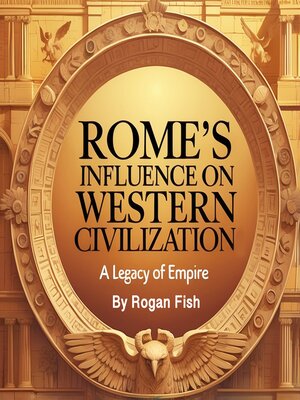
Sign up to save your library
With an OverDrive account, you can save your favorite libraries for at-a-glance information about availability. Find out more about OverDrive accounts.
Find this title in Libby, the library reading app by OverDrive.



Search for a digital library with this title
Title found at these libraries:
| Library Name | Distance |
|---|---|
| Loading... |
The foundations of Roman culture are deeply rooted in the ancient traditions, myths, and social structures that shaped one of the most influential civilizations in history. Emerging from a small settlement on the banks of the Tiber River, Rome's development into a powerful republic and then an empire was significantly shaped by its cultural origins. The myths and legends that surrounded the birth of Rome, the establishment of the Roman Republic, and the codification of laws under the Twelve Tables all played crucial roles in shaping Roman identity and values.
The mythological origins of Rome are centered around the legendary figures of Romulus and Remus, twin brothers said to have been raised by a she-wolf. According to tradition, Romulus founded Rome after a violent conflict with Remus, establishing the city on April 21, 753 BCE. This foundational myth not only explained the city's origin but also conveyed key themes of strength, resilience, and divine favor, which resonated throughout Roman culture. Other myths, such as the story of Aeneas, a Trojan hero who journeyed to Italy and became an ancestor of the Romans, linked Roman culture to the ancient and revered traditions of the Trojan War. These legends fostered a sense of pride and divine destiny among the Roman people, reinforcing their belief in their city's exceptionalism.
The establishment of the Roman Republic in 509 BCE marked a turning point in Roman cultural development. Rejecting monarchy, the Romans developed a political system characterized by a complex balance of power among elected officials, the Senate, and the people. This republican model introduced concepts such as civic duty, shared governance, and public accountability, all of which became integral to Roman identity. The Republic's values shaped the cultural ethos of Rome, emphasizing the importance of law, duty, and loyalty to the state.







